All 12 Pros & Cons of Salt vs. Salt Free Water Softeners
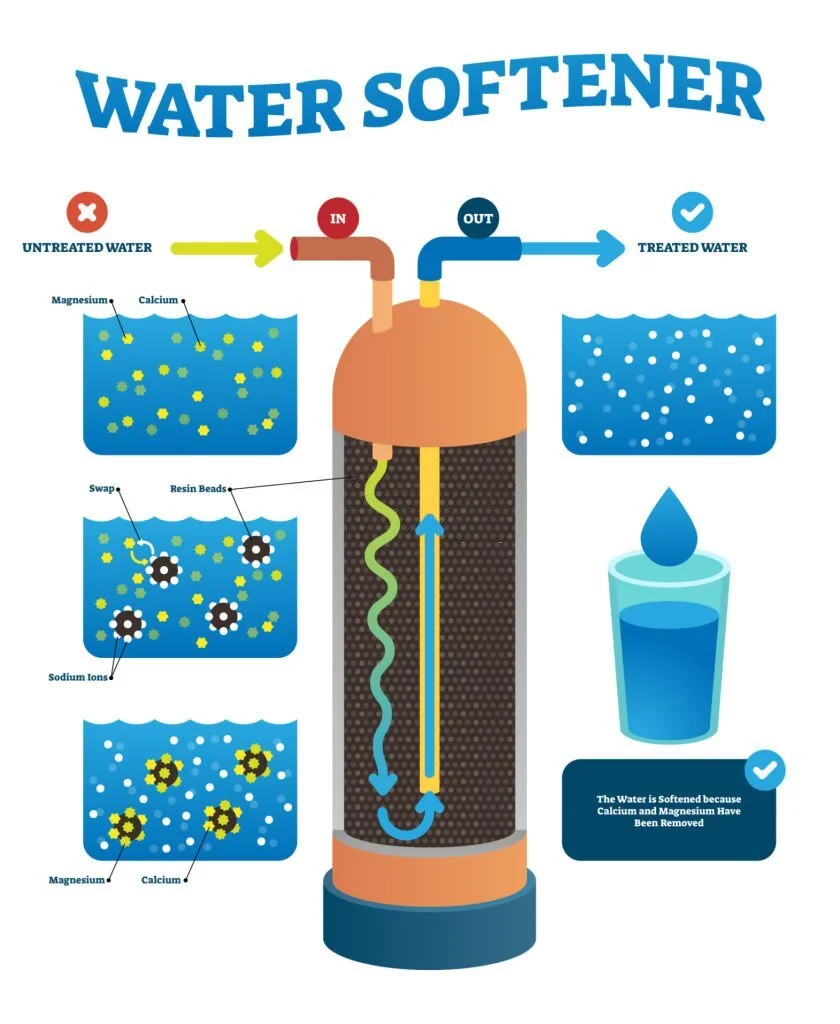
Shop Our Products
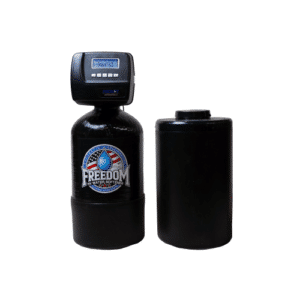
Freedom RV Water Softener System
Specifically for RV and fifth-wheel owners, this high-quality system guarantees your RV’s water is pure,
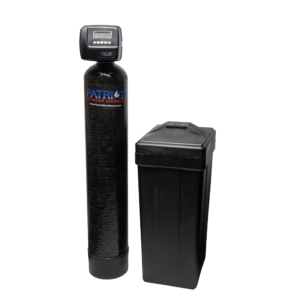
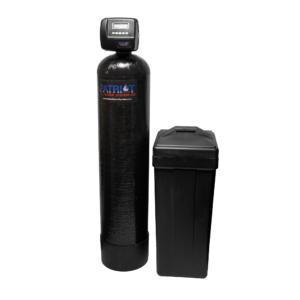
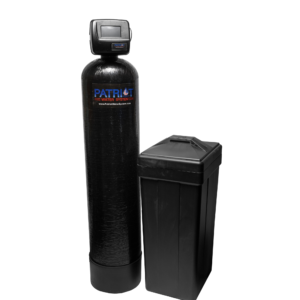
Choosing the right water softener can be confusing with the variety of options available. When comparing salt vs. salt free water softeners, the main decision often boils down to salt vs. non-salt water softeners. Both types have unique features, benefits, and drawbacks. In this guide, we’ll break down the five main differences between salt and non-salt water softeners, helping you make an informed choice for your home.
What is a Water Softener?
A water softener is a device that treats hard water by removing or altering the minerals that cause water hardness, such as calcium and magnesium. This process helps prevent scale build-up in plumbing, appliances, and fixtures, extending their lifespan and improving water quality.
Types of Softeners
Salt Based Water Softeners
Salt based water softeners, also known as ion-exchange water softeners, use sodium or potassium ions to replace calcium and magnesium ions in the water. This process effectively removes the hardness minerals, resulting in softer water.
Non-Salt Softeners
Non-salt water softeners, often referred to as salt-free water conditioners, do not remove hardness minerals. Instead, they alter the chemical structure of the minerals, preventing them from forming scale deposits. Common technologies include template-assisted crystallization (TAC) and electromagnetic systems.
Find out the top 5 water softeners for homes with well water!
Pros & Cons of Salt Vs. Non-Salt Water Softeners
When deciding between salt and non-salt water softeners, comparing their effectiveness, maintenance, environmental impact, and cost is important. Salt water softeners are known for their superior softening capabilities but require regular maintenance and add sodium to the water. Non-salt water softeners are easier to maintain and more environmentally friendly but will not soften water as effectively. Understanding these differences can help you choose the best system for your specific needs.
| Feature | Salt Water Softeners | Non-Salt Water Softeners |
|---|---|---|
| Effectiveness | Highly effective at removing hardness minerals | Moderately effective at preventing scale formation |
| Maintenance | Requires regular salt refills and maintenance | Low maintenance, no salt refills |
| Environmental Impact | Produces wastewater with salt | Environmentally friendly |
| Initial Cost | Moderate to high | Lower initial cost |
| Operational Cost | Ongoing cost for salt and maintenance | Minimal operational cost |
| Health Considerations | Adds sodium to water | No sodium added |
Pros
Salt Water Systems
- Effective Softening: Salt water softeners are highly effective at removing hardness minerals, ensuring soft water throughout your home.
- Reduces Scale Build-Up: By removing calcium and magnesium, these softeners prevent scale build-up in pipes and appliances.
- Improves Soap Efficiency: Soft water enhances the effectiveness of soaps and detergents, leading to better cleaning results and less soap usage.
Salt Free Systems
- Low Maintenance: These systems require little to no maintenance and no salt refills.
- Environmentally Friendly: They do not produce wastewater with salt, making them more eco-friendly.
- No Sodium Addition: Non-salt water softeners do not add sodium to the water, making them healthier for people on low-sodium diets.
Cons
Salt Water Systems
- Maintenance Requirements: Regularly refilling the salt and maintaining the system can be cumbersome.
- Environmental Impact: The regeneration process produces wastewater that contains salt, which can be harmful to the environment.
- Adds Sodium to Water: The ion-exchange process adds sodium to your water, which may not be suitable for those on a low-sodium diet.
Salt Free Systems
- Moderate Effectiveness: They are less effective at removing hardness minerals compared to salt-based systems.
- Limited Scale Prevention: While they prevent scale formation, they do not eliminate existing scale.
- Varied Performance: The effectiveness of non-salt softeners can vary based on water hardness levels and the specific technology used.
What’s Best for You?
Choosing between salt and non-salt water softeners depends on your specific needs and preferences. Here are some questions to help you decide!
- Do you need highly effective softening? A salt water softener may be better.
- Are you concerned about maintenance and ongoing costs? A non-salt system might be more suitable.
- Is environmental impact important to you? Non-salt water softeners are more eco-friendly.
- Do you have dietary restrictions regarding sodium intake? Consider a non-salt water softener.
If you’re still wondering what system is best for you, check out our guide on picking the right water softener!
Conclusion
Understanding the differences between salt and non-salt water softeners is crucial for making the right choice for your home and making sure a water softener is worth it for you. Salt water softeners are highly effective at removing hardness minerals and preventing scale build-up, but they require regular maintenance and can add sodium to your water. Non-salt water softeners are low-maintenance and environmentally friendly but may not be as effective at softening water.
For those looking for the best in water softening solutions, consider our range of Salt Water Systems. Our products are designed to provide superior performance, durability, and ease of use. Invest in a high-quality water softener today and enjoy the benefits of soft water on all your adventures.
FAQ
What is better, salt or non-salt water softener?
The better option depends on your needs. Salt water softeners are more effective at removing hardness minerals, while non-salt systems are low-maintenance and environmentally friendly.
Share:
Talk to A Water Quality Expert
Shop Our Products

Freedom RV Water Softener System
Specifically for RV and fifth-wheel owners, this high-quality system guarantees your RV’s water is pure,



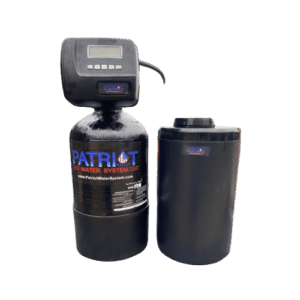
6 Things High Quality RV Water Softeners Always Have
A high-quality RV water softener should be compact, durable, easy to install and regenerate, compatible with RV plumbing systems, and highly efficient. This guide covers the essential features to look for when choosing the best portable water softener for your RV.
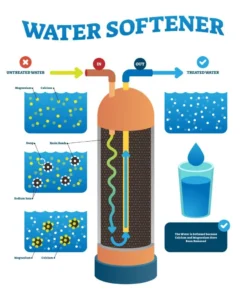
All 12 Pros & Cons of Salt vs. Salt Free Water Softeners
The main differences between salt and non-salt water softeners include their effectiveness at softening water, maintenance requirements, environmental impact, operational costs, and health considerations. This guide will help you understand these differences and decide which type of water softener is best for your needs.
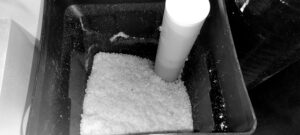
The 5 Stages of Water Softener Regeneration
The water softener regeneration process consists of five crucial stages: fill, brine, slow brine rinse, backwash, and fast rinse. Understanding these stages can help you maintain your water softener’s performance and extend its lifespan.
Join Our
Newsletter
Get the latest information, and exclusive offers on water softening and purity solutions
